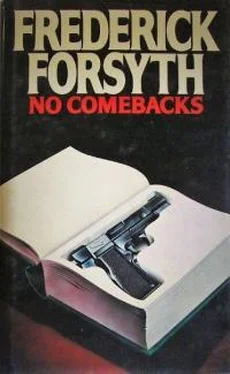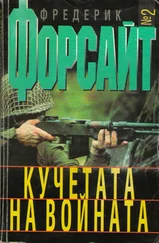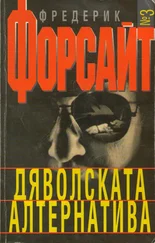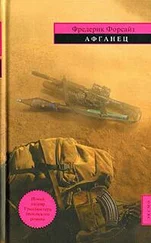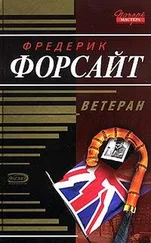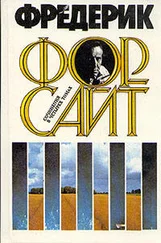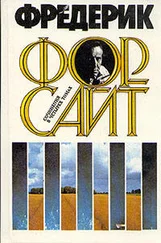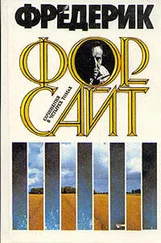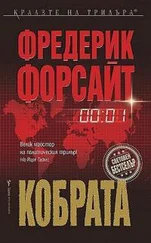Hanley glanced at his watch. It was past eleven. He sighed and hoisted himself on a stool.
'A mug of tea,' he said. He had told the Health and Welfare official to join him in thirty minutes and take the old man into council care. Then he could get back to his office and on with some paperwork. He'd be glad to be shot of the whole business.
Barney Kelleher and his cub reporter came in.
'Buying him breakfast, are you?' asked Barney.
'I'll claim it back,' said Hanley. Kelleher knew he wouldn't. 'Get some pictures?'
Barney shrugged. 'Not bad,' he said. 'Nice one of the chickens. And the chimney stack coming down. And himself being brought out in a blanket. End of an era. I remember the days when ten thousand people lived in the Diamond. And all of them at work. Poor paid, mind you, but working. It took fifty years to create a slum in those days. Now they can do it in five.'
Hanley grunted. 'That's progress,' he said.
A second police car drew up at the door. One of the young officers who had been at Mayo Road jumped out, say/ through the glass that his chief was with the press and halted, irresolute. The cub reporter did not notice. Barney Kelleher pretended not to. Hanley slid off his stool and went to the door. Outside in the rain the policeman told him, 'You'd better come back, sir. They've… found something.'
Hanley beckoned to his driver who came out to the pavement. 'I'm going back,' said Hanley. 'Keep an eye on the old man.' He glanced back into the cafe.
At the far back the old man had stopped eating. He held a fork in one hand, a piece of rolled bread containing half a sausage in the other, perfectly immobile, as he stared silently at the three uniforms on the pavement.
Back at the site, all work had stopped. The demolition men in their oilskins and hard hats stood grouped in a circle in the rubble of the building. The remaining policeman was with them. Hanley strode from his car, picking his way over the shattered piles of brick, to where the circle of men stared downwards. From behind, the remnants of the crowd murmured.
'It's the old man's treasure,' whispered someone loudly from the crowd. There was a murmur of agreement. 'He had a fortune buried there; that's why he'd never leave.'
Hanley arrived at the centre of the group and looked at the area of attention. The short stump of the shattered chimney stack still stood, 5 feet high, surrounded by piles of debris. At the base of the stack, the old black fireplace could still be seen. To one side a couple of feet of outer house wall still stood. At its base, inside the house, was a collection of fallen bricks, from which protruded the shrunken and wizened, but still recognizable leg of a human being. A shred of what looked like a stocking still clung below the kneecap.
'Who found it?' asked Hanley.
The foreman stepped forward. 'Tommy here was working on the chimney breast with a pick. He cleared some bricks to get a better swing. He saw it. He called me.'
Hanley recognized a good witness when he saw one.
'Was it under the floorboards, then?' asked Hanley.
'No. This whole area was built on a marsh. The builders cemented in the floors.'
'Where was it, then?'
The foreman leaned down and pointed to the stump of the fireplace. 'From the inside of the sitting room the fireplace looked to be flush with the wall. In fact it wasn't. Originally it jutted out from the house wall. Someone ran up a quick brick wall between the chimney breast and the end of the room, forming a cavity twelve inches deep, right up to the room ceiling. And another on the other side of the fireplace to give symmetry. But the other one was empty. The body was in the cavity between the false wall and the house wall. Even the room was repapered to cover the work. See, the same paper on the front of the chimney breast as on the false wall.'
Hanley followed his finger; shreds of the same damp-mottled wallpaper adhered to the front of the chimney breast above the mantelshelf and to the bricks surrounding and part covering the body. It was an old paper with a rosebud pattern on it. But on the inside of the original house wall beside the fireplace, a dingy and even older striped wallpaper could be discerned.
Hanley stood up. 'Right,' he said. 'That's the end of your work for today. You might as well stand the men down and let them go. We'll be taking over from here.' The hard hats began to move back off the pile of bricks. Hanley turned to his two policemen.
'Keep the crowd barriers up,' he said. 'The whole place sealed off. More men will be coming, and more barriers. I want this place unapproached from any of the four sides. I'll get more manpower up here and the forensic boys. Nothing touched until they say so, OK?'
The two men saluted. Hanley heaved himself back into his car and called precinct headquarters. He issued a stream of orders, then had himself patched through to the technical section of the Investigation Bureau, tucked away in a grim old Victorian barracks behind Heuston railway station. He was lucky. Detective Superintendent O'Keefe came on the line, and they had known each other many years. Hanley told him what had been found and what he needed.
'I'll get them up there,' O'Keefe's voice crackled down the line. 'Do you want the Murder Squad brought in?'
Hanley sniffed. 'No thanks. I think we can handle this one at divisional level.'
'Do you have a suspect then?' asked O'Keefe.
'Oh, yes, we have one of those all right,' said Hanley.
He drove himself back to the caf6, passing Barney Keileher who was trying unsuccessfully to get back through the crowd barrier. This time, the patrolman on duty was not being nearly so helpful.
At the cafe, Hanley found his driver still at the counter. At the rear sat the old man, meal finished, sipping a cup of tea. He stared at Hanley as the giant policeman came over to him.
'We've found her,' said Hanley, leaning over the table and speaking so softly that no one else in the room could hear him.
'We'd better be going, had we not, Mr Larkin? Down to the station, now? We have to do a little talking, do we not?'
The old man stared back without a word. It occurred to Hanley that so far he had not opened his mouth. Something flickered in the old man's eyes. Fear? Relief? Probably fear. No wonder he had been afraid all these years.
He rose quietly and with Hanley's firm hand on his elbow went out to the police car. The driver followed and climbed behind the wheel. The rain had stopped and a chill wind blew toffee papers like autumn leaves down the street where no trees grew. The car drew away from the kerb. The old man sat hunched, staring ahead, silent.
'Back to the station,' said Hanley.
There is no country in the world where a murder investigation is a matter of inspired guesses as television would have it. They are 90 per cent plodding routine, formalities to be gone through, procedures to be fulfilled. And administration, plenty of that.
Big Bill Hanley saw the old man settled into a cell at the back of the charge room; he made no protest, asked for no lawyer. Hanley had no intention of charging him — yet. He could hold him on suspicion for at least twenty-four hours and he wanted more facts first. Then he sat at his desk and started with the telephone.
'By the book, lad, by the book. We're not Sherlock Holmes,' his old sergeant used to tell him, years before. Good advice. More cases have been lost in court by procedural screw-ups than have ever been won by intellectual brilliance.
Hanley formally informed the city coroner of the fact of a death, catching the senior civil servant just as he was leaving for his lunch. Then he told the city morgue in Store Street, just behind the bus terminal, that there would be a complex post-mortem that afternoon. He traced the state pathologist, Professor Tim McCarthy, who listened calmly on a telephone in the hallway of the Kildare Club, sighed at the thought of missing the excellent breast of pheasant that was on the menu, and agreed to come at once.
Читать дальше
